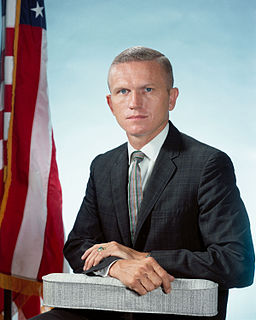A Quote by Martin Rees
It would be sad if the expertise built up during the 40 years of the U.S. and Russian manned programmes were allowed to dissipate. But abandoning the shuttle, and committing to new launch vehicles and propulsion systems, is actually a prerequisite for a vibrant manned programme.
Related Quotes
It's very sad that there's going to be a hiatus in manned space flight from the U.S. The Shuttle was a fantastic, hugely complex vehicle. It was inevitable it would come to an end, but this is the opportunity for the commercial world to get involved. As the Shuttle era ends, another window of opportunity opens.
To allow public access to orbit, we would need breakthroughs that would lower the cost by a lot more than an order of magnitude and increase safety by a factor of 100 as compared to every launch system used since the first manned space flight. I think airborne launch will be a significant part of the safety solution.
There is just no way that I can understand in God's green earth that an airline could undertake with its normal procedures the operation of the Space Shuttle. . . . You don't put parachutes on airliners because the margin of safety is built into the machine. The 727 airplanes we fly are proven vehicles with levels of safety and redundancy built in. The shuttle is a hand-made piece of experimental gear.

































